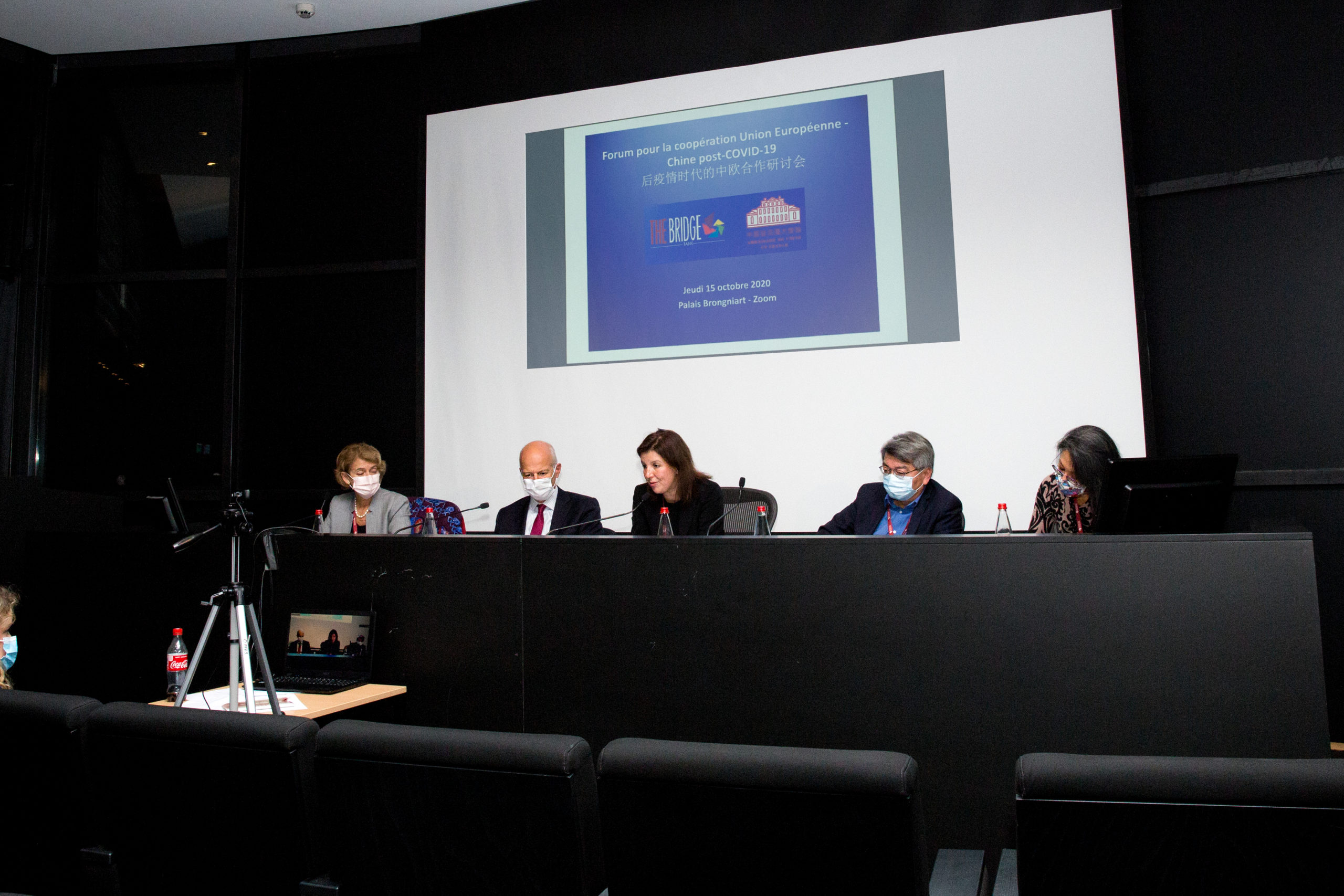The issue of human exchanges, whether cultural, educational or scientific, is crucial to envisage the future, especially during this health crisis. Irina Bokova, Hervé Barbaret, Amel Kefif, Wu Peirong and Deborah Furet discussed these issues.
For Irina Bokova, this is an important topic in the debate on the refocusing of relations between Europe and China, especially as China has invested heavily in heritage, culture and identity.
For Hervé Barbaret, new solidarities, new curiosities and new networks must be created.
New solidarities: access to works of art and the sensory experience is unsurpassable. To counter the forms of communitarianism that claim to exclude a large part of humanity from works not produced by their own culture, we must develop a generous universalist approach that does not hierarchize, that allows us to cross our views, to take advantage of the richness of the convergences and divergences in the formal approaches.
New curiosities: the great challenge is that of attractiveness, of taking note of the richness of the cultural offer in the vicinity and of awakening curiosity for this offer.
New networks: the cultural offer is too often in silos, there is a need for a reconciliation of knowledge. Post-covid human exchanges require a decompartmentalized approach which may or may not be based on technological tools.
Amel Kefif underlined the entrepreneurial point of view in relation to the national cooperation committees, which raise for example the question of investments made by the diasporas. The African diaspora develops networks to create cultural projects between Europe and Africa, as well as socio-professional synergies and entrepreneurship support. These projects contribute to the fight against cultural and gender stereotypes. These good practices in cultural exchanges between France and Africa could be duplicated between China and Europe and vice versa. This raises questions about the obstacles and recommendations for directing productive investment between these two powers, and what the debates are for entrepreneurship.
Wu Peirong recalled that technological advances have contributed to progress but social networks create a cultural bubble that contributes to locking people into their subjects, which could reinforce political polarisation as observed in the USA. Technologies are therefore double-edged because they can create cultural walls.
Deborah Furet places these issues in the Chinese philosophical tradition in which the transformation of society does not come through politics, but through the individual, which is not the same as in European culture. In China, the individual is inseparable from others and from nature. This tradition can help to think about societal transformations.
Download the summary of the discussion (in French) here
Download the verbatim report (in French) here

